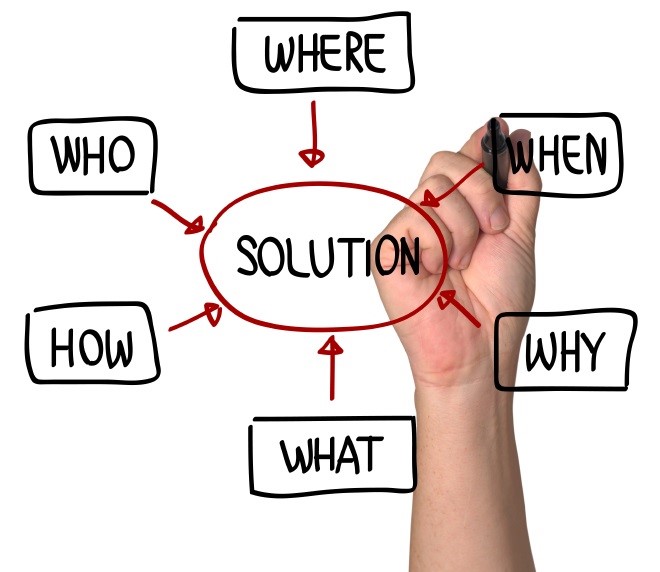A marketing funnel is made up of different stages and it breaks down the customer journey from the awareness stage to the purchasing stage. According to Sprout Social, a marketing funnel lets you know what your company must do to influence consumers at certain stages to drive sales, and increase brand loyalty/awareness.
Why is creating an effective marketing funnel important?
Creating an effective marketing funnel is important because just like any other funnel, a high volume of leads enter the top of the funnel. However, as they move through each stage of the funnel, more and more leads get weeded out.
So the overarching question here is: How do I keep more leads moving through the marketing or sales funnel? Here are a few key considerations to take into account at each stage of the funnel:
Stage 1: Raise Awareness
The very first step to creating an effective marketing funnel is to raise awareness for your product or service. This is the stage right before prospective customers enter the sales funnel, and it’s your time to shine and come up with creative and compelling ways to attract the right prospects.
Understand your ideal customer demographics
In order to create an effective marketing funnel, research always comes first. Research shows that start-ups often fail because they don’t understand the market and the problems of their customers.
Take the time to come up with ideal customer personas. Investing the time to understand who your potential buyers are will be beneficial for the later steps.
Get the word out about your product or service
Once you understand your ideal customer demographics, it’s time to get the word out about your product or service. Raise awareness by coming up with ways to tell prospects what your product or service is all about.
At this stage of the funnel, the main focus is lead generation. Investing in paid advertising and SEO/SEM campaigns at this stage is a good head start. Get to know the SEO must-dos for every local business to drive traffic and growth. This stage is also the ideal time to start caring about On-SERP SEO. Your ultimate goal should be to reach as wide an audience as possible.
Take the necessary opportunities to get your brand out there. For example, you can create a product video to ignite your marketing campaigns. There are also different types of videos you can use build your brand, business, and bottom line. You can also reach out to micro-influencers or brand ambassadors to promote your brand. You can even create a purpose-driven marketing strategy to attract new leads to the top of your marketing funnel.
Stage 2: Build A Relationship

Once you have solidified a strategy or plan to raise awareness for your product or service, the next step to creating an effective marketing funnel to drive sales is to nurture your leads by building meaningful relationships. At this stage, prospective customers have already entered the marketing funnel. It’s now up to you to continue building that relationship and retain those prospects through your marketing efforts.
The exchange of information is key
One of the best ways to start building strong and effective relationships with prospective customers is to first engage in an exchange of information. Many businesses do this by asking for their email address in exchange for valuable content or more information. Tying in your content marketing strategy is key to creating an effective marketing funnel to drive sales. Over time, you can send them valuable content to build a relationship so that you are the first brand that comes to mind when they are ready to buy.
Provide an exit intent pop-up
We’ve all seen these on the websites we’ve visited. They’re the pop-ups that are displayed when we often close the webpage window or tab. Typically, this pop-up window will have an opt-in option, and studies show that one pop-up can boost your conversion rates by 10% or more.
Build a stronger relationship with your audience through email marketing
Integrating email marketing provides an avenue for constant and consistent interaction with subscribers who have expressed interest in your company, product, or service. Understand how to deliver compelling email marketing to promote consistent engagement and drive sales. Marketing automation can help your leads trickle down the funnel and increase the chances of turning them into buyers. Both email marketing and marketing automation can also help you map out your marketing funnel at each stage and throughout the entire customer buying journey.
Stage 3: Conversion

The last stage of the marketing funnel is lead conversion. Yes, your prospects (which you have poured your hard work, dedication… and marketing budgets into) have finally decided to buy your product or service. However, it doesn’t end here. You want to ensure that these lead conversions become returning buyers.
With that, you should be investing more and putting more effort into building relationships with existing customers. A repeat customer is easier to sell to and has a 60-70% chance of converting. Continue to create a unique and engaging customer experience to continue driving sales through your marketing efforts. Using data-driven creativity can help enhance the customer experience. It’s also an easy way to build brand trust and loyalty.
At the end of the day, creating a high-quality marketing funnel can help skyrocket your business. Being able to effectively guide prospects through the journey of becoming buying customers is not something that will happen overnight. It definitely takes a lot of strategic thinking. Instead of exploring random tactics, develop a strong understanding of how you would like to engage with leads at each stage of the funnel. This will guarantee success in driving a higher volume of conversions and sales.

Stay connected